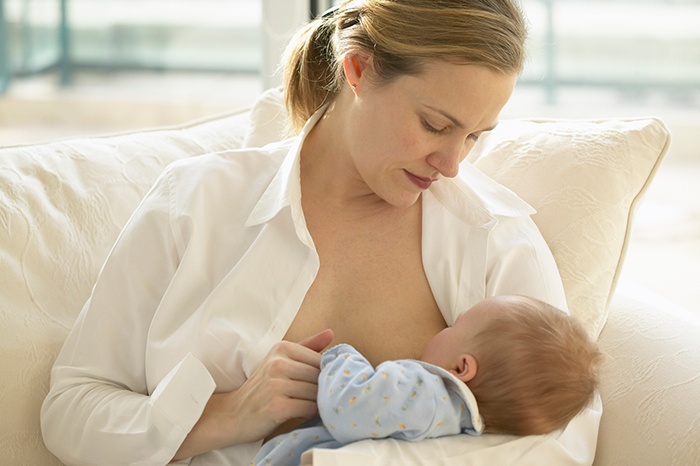
Women who breastfed their infants exclusively for 7 to 12 months may have a significantly lower risk of early menopause than their peers who breastfed their infants for less than a month, according to an analysis funded by the National Institutes of Health. The study also suggests that pregnancy can reduce the risk of early menopause.
The study was conducted by Christine Langton, M.S.W., M.P.H., of the University of Massachusetts at Amherst, and colleagues. It appears in JAMA Network Open. Funding was provided by NIH’s Eunice Kennedy Shriver National Institute of Child Health and Human Development (NICHD) and the National Cancer Institute.
“The study results provide the strongest evidence to date that exclusive breastfeeding may reduce the risk of early menopause,” said Lisa Halvorson, M.D., chief of the NICHD Gynecological Health and Disease Branch, which oversaw the research.
Previous studies have suggested that menopause before age 45 (early menopause) increases the risk of early death, cognitive decline, osteoporosis and cardiovascular disease. Smaller studies have found evidence linking pregnancy and breastfeeding with later menopause, but because of their size and other limitations, the results are inconclusive. Moreover, the earlier studies focused on timing of menopause and not on the risk of early menopause.
In the current study, researchers analyzed data from more than 100,000 women ages 25 to 42 years in the Nurses’ Health Study II 
Women who breastfed had an even smaller risk for early menopause. Those who breastfed for a total of 25 months or more during their premenopausal years had a 26% lower risk than women who breastfed for less than a month. Similarly, women who breastfed exclusively 7 to 12 months had a 28% lower risk of early menopause, compared to those who breastfed for less than a month.
The study did not determine why pregnancy and breastfeeding might lower the risk of early menopause. However, researchers theorize that because pregnancy and breastfeeding halt ovulation, the slowing of the egg loss may delay menopause.
Reference
Langton CR, et al. Association of Parity and Breastfeeding With Risk of Early Natural Menopause. JAMA Network Open. 2020.
###
About the Eunice Kennedy Shriver National Institute of Child Health and Human Development (NICHD): NICHD leads research and training to understand human development, improve reproductive health, enhance the lives of children and adolescents, and optimize abilities for all. For more information, visit https://www.nichd.nih.gov.
About the National Institutes of Health (NIH): NIH, the nation's medical research agency, includes 27 Institutes and Centers and is a component of the U.S. Department of Health and Human Services. NIH is the primary federal agency conducting and supporting basic, clinical, and translational medical research, and is investigating the causes, treatments, and cures for both common and rare diseases. For more information about NIH and its programs, visit https://www.nih.gov

 BACK TO TOP
BACK TO TOP